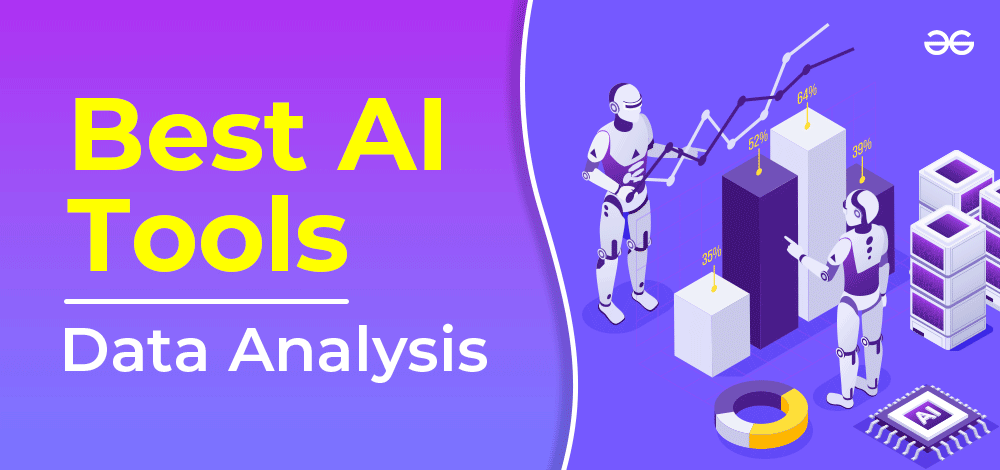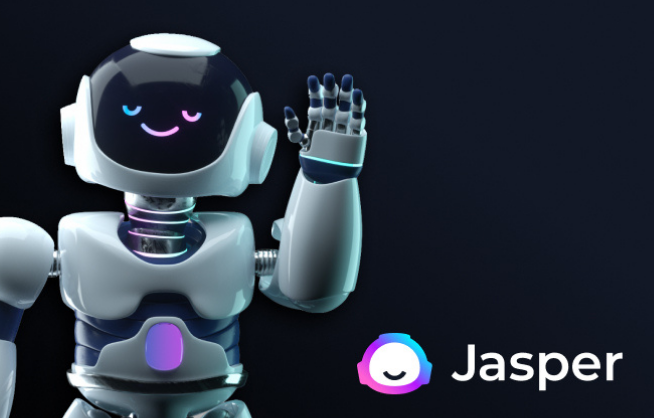Data analysis is now a fundamental part of any data-driven organization. It transforms raw data into valuable insights that drive smarter decision-making. The good news is that there are numerous tools available for both seasoned professionals and beginners. These tools help visualize, analyze, and track data, enabling you to extract insights needed to reach your business objectives.
The Role of AI in Data Analytics
Artificial intelligence (AI) is a critical component of effective data analytics. It offers a powerful, efficient, and user-friendly way to process large volumes of data.
AI sifts through massive datasets to identify trends and patterns that can be used to improve business processes. By centralizing data into one platform, AI tools provide users with a comprehensive overview, making analysis more streamlined. Additionally, AI-driven predictive analytics helps businesses forecast outcomes and assess various scenarios to predict success probabilities.
For organizations aiming to thrive in today’s data-driven world, AI-powered data analysis tools are essential.
The 10 Best AI Tools for Data Analysts:
1. Julius AI
Julius AI is an intelligent data analysis tool designed to simplify complex data interpretation, visualization, and analysis. With its intuitive, user-friendly interface, Julius makes data analysis accessible even to those without a background in data science or statistics.
Julius AI supports a wide range of data file formats, including Spreadsheets (.xls, .xlsx, .xlsm, .xlsb, .csv), Google Sheets, and Postgres databases.
Once your data source is linked, you can use natural language prompts on the Chat page to analyze the data. You can easily ask Julius for insights or request the creation of visualizations.
This tool is ideal for simple projects and users who prioritize ease of use.
Key Features of Julius AI:
- Directly link data sources within the chat interface.
- Analyze spreadsheets with multiple tabs.
- Strict access control, ensuring that users only access their own data.
- Easy to use with no technical expertise required.
2. Powerdrill AI
Powerdrill AI is a robust platform designed for fast and efficient data analysis. It allows users to upload files and interact with their data through a conversational interface, making it ideal for professionals and enterprises looking to analyze complex data in real-time.
This platform offers advanced machine learning capabilities for trend prediction, customizable dashboards, and ensures data privacy by adhering to GDPR, ISO, and AICPA standards. Powerdrill AI also integrates seamlessly with existing systems, enhancing productivity and collaboration.
While the platform requires a stable internet connection for cloud-based processing, its scalability and powerful features make it an excellent choice for handling large-scale data analysis needs.
Key Features of Powerdrill AI:
- Conversational Interface: Easily interact with data using natural language.
- Real-Time Analytics: Get instant insights and trend predictions.
- Data Privacy: Compliant with GDPR, ISO, and AICPA standards to ensure secure data handling.
- System Integration: Seamlessly integrates with your existing IT infrastructure.
- Community and Support: Access an active user community on Discord and comprehensive documentation for quick learning and troubleshooting.
Powerdrill AI is perfect for professionals seeking powerful analytics tools with a focus on privacy and integration.
3. DataLab
DataLab is an AI-powered data notebook designed to streamline and accelerate the process of transforming data into actionable insights. By combining a powerful integrated development environment (IDE) with generative AI technology, DataLab enables users to interact with their data through an intuitive chat interface. This setup eliminates the need to switch between multiple tools, allowing users to write, update, debug code, analyze data, and generate reports within one platform.
The AI Assistant in DataLab facilitates seamless interaction with data, offering help in writing and fixing code, explaining data structures, and providing context-aware suggestions to improve workflow efficiency. DataLab also supports real-time collaboration, enabling teams to work together on data projects, share insights, and maintain version control effortlessly.
As users explore their data, DataLab automatically generates live-updating reports that can be customized and easily shared. It connects to a variety of data sources, including CSV files, Google Sheets, Snowflake, and BigQuery, simplifying data importation and analysis.
Key Features of DataLab:
- AI-Powered Data Notebook: Interact with data using a chat interface for intuitive insights.
- AI Assistant: Assists with writing, fixing code, and providing context-sensitive suggestions.
- Real-Time Collaboration: Supports teamwork, sharing, and version control in data projects.
- Live-Updating Reports: Automatically generates reports that can be customized and shared.
- Data Source Integration: Connects to CSV files, Google Sheets, Snowflake, BigQuery, and more for easy data import.
4. Echobase
Echobase is a platform designed to help teams query, create, and analyze data using advanced AI models. It allows businesses to train AI agents for various tasks, including Q&A, data analysis, and content creation, without requiring any coding. Integration is straightforward—simply upload files or sync with cloud storage to get started.
Echobase fosters seamless collaboration by allowing team members to access AI agents, assign roles, and manage permissions. The platform prioritizes data security, utilizing AWS encryption to ensure users have full control over their data.
In addition to its core features, Echobase offers a variety of AI tools such as paragraph and email generators, story creators, and more, helping users enhance creativity and productivity. Users can try Echobase for free, with no credit card required.
Key Features of Echobase:
- No-Code AI Training: Train AI agents for Q&A, data analysis, and content creation with ease.
- Easy Integration: Upload files or sync cloud storage for seamless setup.
- Collaboration: Assign roles, manage permissions, and collaborate efficiently with team members.
- Data Security: AWS encryption ensures secure handling and full control over your data.
- AI Tools: Includes paragraph and email generators, story creators, and other productivity-enhancing tools.
5. Microsoft Power BI
Microsoft Power BI is a powerful business intelligence platform designed to help users sort through data and visualize it for actionable insights. With the ability to import data from nearly any source, users can quickly begin building reports and dashboards to gain valuable perspectives.
Power BI also enables the creation of machine learning models and incorporates AI-powered features to enhance data analysis. It integrates smoothly with various tools, including native integration with Excel and Azure Machine Learning. For enterprises already using Microsoft products, Power BI can be easily implemented for data reporting, visualization, and dashboard creation.
Key Features of Microsoft Power BI:
- Seamless Integration: Easily integrates with existing applications like Excel and Azure Machine Learning.
- Personalized Dashboards: Create custom dashboards tailored to specific business needs.
- Secure Report Publishing: Share reports with built-in security features.
- No Memory or Speed Constraints: Handles large datasets without performance issues, providing fast insights.
6. Polymer
Polymer is a powerful AI tool that simplifies data analysis by transforming raw data into a streamlined, flexible, and interactive database. One of its standout features is that it requires no coding, making it accessible to users with varying technical expertise.
The tool uses AI to analyze and enhance users’ understanding of their data. After uploading a spreadsheet, Polymer instantly converts it into a searchable and intelligent database, ready for exploration and insight generation.
Polymer is used by a wide range of professionals, including data analysts, digital marketers, content creators, and more, thanks to its ease of use and powerful capabilities.
Key Features of Polymer:
- AI-Powered Transformation: Turns data into a structured, flexible database.
- No Coding Required: Accessible to users without technical expertise.
- Data Analysis: Enhances users’ understanding of data through AI-driven insights.
- Searchable and Interactive Spreadsheets: Makes spreadsheets instantly searchable and interactive for easier analysis.
7. Akkio
Akkio is a user-friendly business analytics and forecasting tool designed to help users analyze their data and predict potential outcomes. Perfect for beginners, Akkio is ideal for those new to data analysis and predictive modeling.
The platform allows users to upload datasets and select variables to predict, enabling Akkio to build a neural network around those variables. It’s especially useful for predictive analysis in marketing and sales. Like other top tools, Akkio requires no prior coding experience.
Akkio uses 80% of the uploaded data for training and the remaining 20% for validation, ensuring that the model provides accurate predictions. Instead of directly predicting outcomes, Akkio offers an accuracy rating for the models and highlights any false positives.
Key Features of Akkio:
- No-Code Machine Learning: Easily build machine learning models without coding.
- Beginner-Friendly: Perfect for those starting out with data analysis.
- Neural Network Construction: Builds predictive models based on selected variables.
- Accuracy Rating: Provides an accuracy rating for models and highlights false positives for better
8. MonkeyLearn
MonkeyLearn is a no-code platform that leverages AI to help users analyze, visualize, and reorganize their data efficiently. With a focus on text analysis, it offers a range of AI-powered tools that can instantly analyze and visualize data based on specific needs.
The platform enables users to set up text classifiers and extractors, automating tasks like sorting data by topic or intent and extracting product features or user information. This makes it an excellent choice for streamlining business workflows and reducing the time spent on manual data processing.
One standout feature is MonkeyLearn’s ability to automatically pull and classify data from incoming tickets using keywords and advanced text analysis. This functionality allows users to sort and categorize text for easier processing.
Key Features of MonkeyLearn:
- Simple Text Classification: Classifies text into labels for easy categorization.
- Data Organization: Easily clean, organize, and visualize feedback for better decision-making.
- No Coding Required: Accessible to users with no coding experience.
- Workflow Automation: Saves time by automating text analysis and business workflows.
9. BlazeSQL
BlazeSQL is an AI-powered tool designed to simplify data analysis by converting natural language queries into SQL insights. It automates the SQL query generation process, enabling teams to quickly extract and visualize data from databases without the need for extensive SQL knowledge.
BlazeSQL supports a variety of SQL databases, including MySQL, PostgreSQL, Microsoft SQL Server, Snowflake, BigQuery, and Redshift, among others. It offers both cloud-based and desktop versions, providing flexibility while ensuring data privacy and security by performing database operations locally on your device.
Key Features of BlazeSQL:
- No-Code SQL Generation: Converts text prompts into SQL queries instantly, eliminating the need for manual query writing and debugging.
- Local and Private: The desktop version ensures your data remains secure and operations are performed locally.
- AI-Powered Insights: BlazeSQL learns from your database, improving query generation over time.
- Supports Complex Queries: Capable of generating advanced SQL queries for both simple and complex data analysis.
- Customizable Documentation: Document your database schema to help the AI better understand and interact with your data.
BlazeSQL is trusted by major companies like Amazon, Visa, and eBay for its ability to streamline data analysis, making it easier to generate insights and make informed decisions.
10. Tableau
Tableau is a leading analytics and data visualization platform that allows users to interact with their data without requiring coding knowledge. It enables users to create, visualize, and share reports across both desktop and mobile platforms, making data analysis accessible to non-technical users.
Tableau supports data visualization and analytics, allowing users to build detailed reports that can be shared in a browser or embedded in applications. The platform can be deployed both on the cloud and on-premise, offering flexibility based on user needs.
The core query language, VizQL, translates drag-and-drop components into back-end queries, enabling users to create interactive visualizations with minimal performance optimization needed.
Key Features of Tableau:
- Complex Computations and Data Blending: Supports advanced analytics, data blending, and dashboard creation.
- Interactive Visualizations: Quickly build and share interactive data visualizations.
- Ease of Implementation: Simple to set up and start using for quick deployment.
- Handles Large Datasets: Capable of managing and analyzing large amounts of data with ease.
Tableau is trusted by businesses across industries for its ability to simplify data analysis, enabling teams to make data-driven decisions efficiently.
Summary
In conclusion, the integration of artificial intelligence (AI) into data analysis is transforming how organizations interpret and use their data. AI-powered analytics tools simplify data processing, revealing valuable insights that support better decision-making and enhance business strategies. By leveraging AI, businesses can efficiently analyze large datasets, predict outcomes, and optimize operations, helping them remain competitive in an increasingly data-driven world.
These advanced tools are designed to cater to both experienced professionals and beginners, with user-friendly interfaces that eliminate the need for extensive coding knowledge. From creating intuitive visualizations to automating workflows and enhancing predictive capabilities, AI analytics tools enable users to make data-driven decisions with greater speed and accuracy.
The tools discussed in this article are among the top AI-powered solutions available today, each offering unique features and benefits to meet diverse needs. As AI continues to evolve, these tools will play an even more crucial role in the success of data-driven organizations.












Leave a Reply